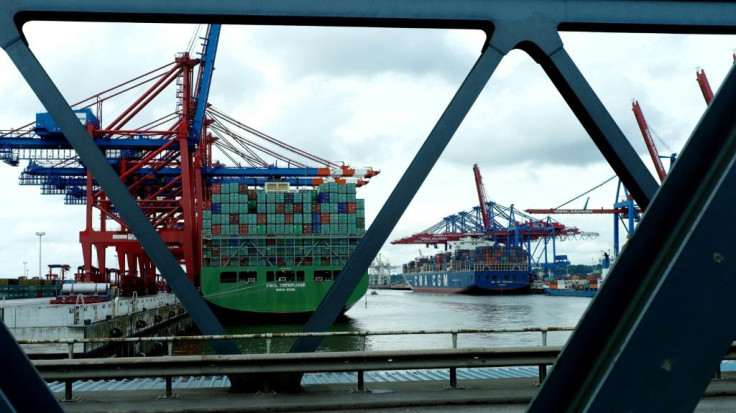Coronavirus Update: Virus May Push Germany Into Recession Due To Close Trade Links

KEY POINTS
- Deutsche Bank expects German GDP to contract in the fourth quarter of 2019 and first quarter of 2020
- Germany’s auto industry is very dependent upon China
- A drop of 1% in China's GDP due to the virus could reduce German GDP by 0.06%
Germany, already reeling from a weakening manufacturing sector, could be pushed into a recession by the fallout from the ongoing coronavirus epidemic.
Deutsche Bank warned in a report on Wednesday that Europe’s largest economy will experience a small contraction in the fourth quarter and is unlikely to witness a recovery in 2020.
“The coronavirus presents a risk to the global recovery as it dampens hopes for a revival in the Chinese economy,” said Stefan Schneider, an economist at Deutsche Bank. “A technical recession… therefore seems increasingly likely.”
Schneider estimated the virus will result in a 0.2 percentage point reduction in Germany’s gross domestic product for the three-month period through March – meaning two straight quarters of contraction, the definition of a recession.
Germany’s export-heavy economy is very dependent upon China. Germany’s all-important automotive industry is particularly vulnerable to a Chinese slowdown -- about one-third of all German vehicle exports (5.2 million units) went to in China in 2019.
In addition, German carmakers have about 30 production facilities in China, while German auto parts suppliers have more than 300 locations in China.
However, Deutsche Bank also noted that “if the spread of the coronavirus soon peaks as expected, demand [for German products] may simply shift to the later course of 2020."
Timo Wollmershauser, deputy director of the Ifo Center for Macroeconomics and Surveys in Germany, said he thinks that "the economic consequences [of coronavirus] will be greater than the SARS [severe acute respiratory syndrome] epidemic" of 2003.
"Since then, the country's economic importance has grown, the infection rate is greater and the Chinese government has reacted harder," said Wollmershauser.
Ifo estimated that a drop of 1% in China's GDP due to the virus could reduce German GDP by 0.06% now.
China is Germany’s biggest trading partner while Germany is China’s most important trading partner in Europe. In 2018, the bilateral trade volume between these two economic powerhouses amounted to about €200 billion ($218 billion).
Last Friday, Germany released grim economic data -- industrial production dropped in December for the fifth time in the past seven months, falling by almost 7% over the year. Exports inched up only 0.1% in December over the prior month. Also, German factory orders shrunk by 2.1% month-over-month.
“I am pessimistic about the German outlook because Germany could experience something like the perfect storm,” said Marcel Fratzscher, president of the German Institute for Economic Research.
Fratzscher cited several risks, including a slowdown in global trade, coronavirus, a weak financial sector in Europe and Brexit.
Based on preliminary data, Germany’s economy grew by just 0.6% in 2019, the weakest expansion since 2013.
“The smart government response would be to say look we are a risk manager, we are acting now to stabilize the economy,” Fratzscher said. “At the moment we have a bit of a paralysis, there’s just not the political will to make that fiscal spending.”
Meanwhile, China’s Foreign Minister Wang Yi is headed to Germany to discuss the status of the coronavirus outbreak and bilateral relations with his German counterpart. It will mark the first overseas journey by a senior Chinese official since the virus first broke out.
© Copyright IBTimes 2024. All rights reserved.




















